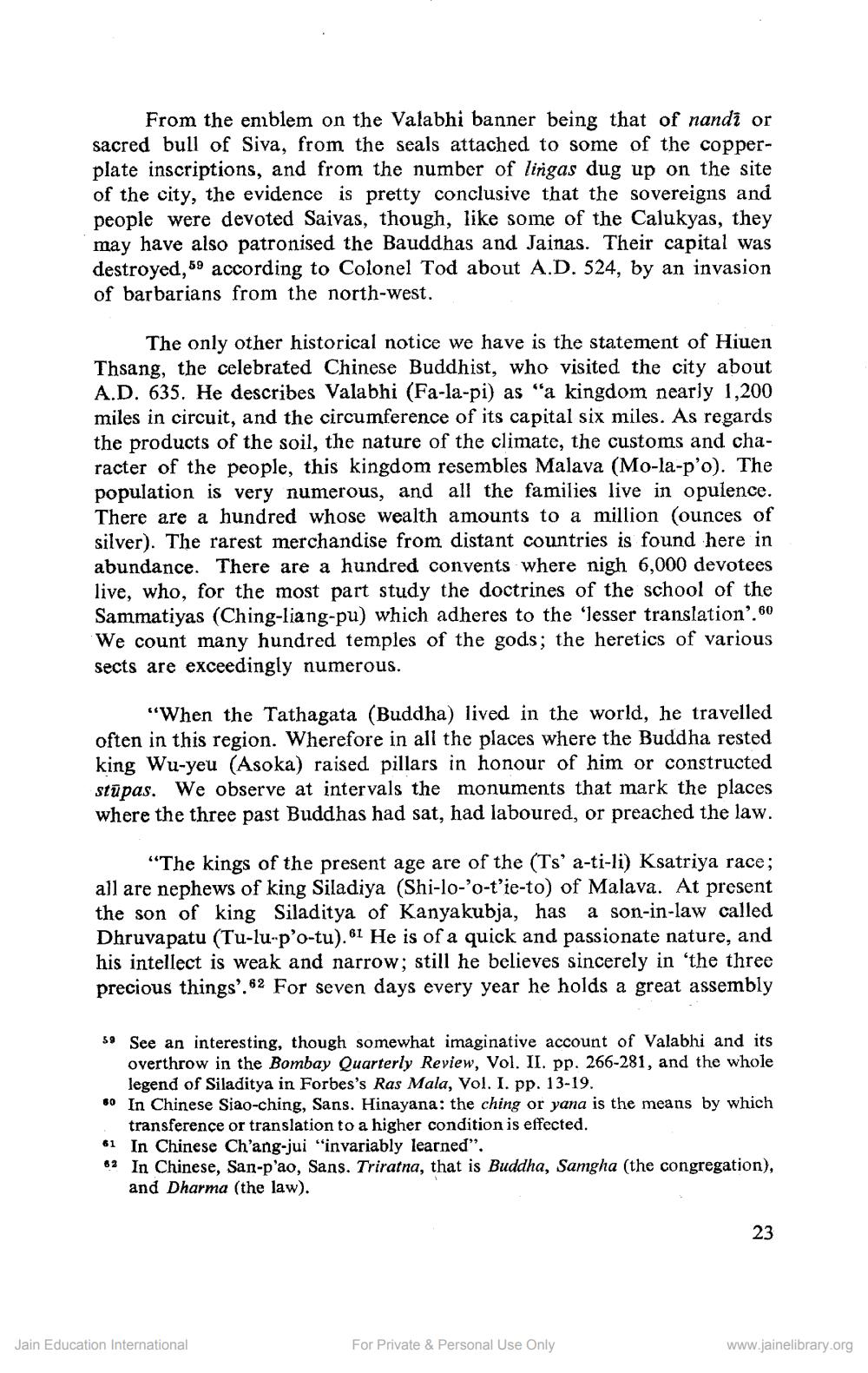________________
From the emblem on the Valabhi banner being that of nandi or sacred bull of Siva, from the seals attached to some of the copperplate inscriptions, and from the number of lingas dug up on the site of the city, the evidence is pretty conclusive that the sovereigns and people were devoted Saivas, though, like some of the Calukyas, they may have also patronised the Bauddhas and Jainas. Their capital was destroyed, 59 according to Colonel Tod about A.D. 524, by an invasion of barbarians from the north-west.
The only other historical notice we have is the statement of Hiuen Thsang, the celebrated Chinese Buddhist, who visited the city about A.D. 635. He describes Valabhi (Fa-la-pi) as "a kingdom nearly 1,200 miles in circuit, and the circumference of its capital six miles. As regards the products of the soil, the nature of the climate, the customs and character of the people, this kingdom resembles Malava (Mo-la-p'o). The population is very numerous, and all the families live in opulence. There are a hundred whose wealth amounts to a million (ounces of silver). The rarest merchandise from distant countries is found here in abundance. There are a hundred convents where nigh 6,000 devotees live, who, for the most part study the doctrines of the school of the Sammatiyas (Ching-liang-pu) which adheres to the 'lesser translation’. 60 We count many hundred temples of the gods; the heretics of various sects are exceedingly numerous.
“When the Tathagata (Buddha) lived in the world, he travelled often in this region. Wherefore in all the places where the Buddha rested king Wu-yeu (Asoka) raised pillars in honour of him or constructed stūpas. We observe at intervals the monuments that mark the places where the three past Buddhas had sat, had laboured, or preached the law.
“The kings of the present age are of the (Ts' a-ti-li) Ksatriya race; all are nephews of king Siladiya (Shi-lo-'o-t'ie-to) of Malava. At present the son of king Siladitya of Kanyakubja, has a son-in-law called Dhruvapatu (Tu-lu-p'o-tu). 61 He is of a quick and passionate nature, and his intellect is weak and narrow; still he believes sincerely in 'the three precious things'. 62 For seven days every year he holds a great assembly
59 See an interesting, though somewhat imaginative account of Valabhi and its
overthrow in the Bombay Quarterly Review, Vol. II. pp. 266-281, and the whole
legend of Siladitya in Forbes's Ras Mala, Vol. I. pp. 13-19. 60 In Chinese Siao-ching, Sans. Hinayana: the ching or yana is the means by which
transference or translation to a higher condition is effected. 61 In Chinese Ch'ang-jui "invariably learned". 62 In Chinese, San-p'ao, Sans. Triratna, that is Buddha, Samgha (the congregation),
and Dharma (the law).
23
Jain Education International
For Private & Personal Use Only
www.jainelibrary.org




